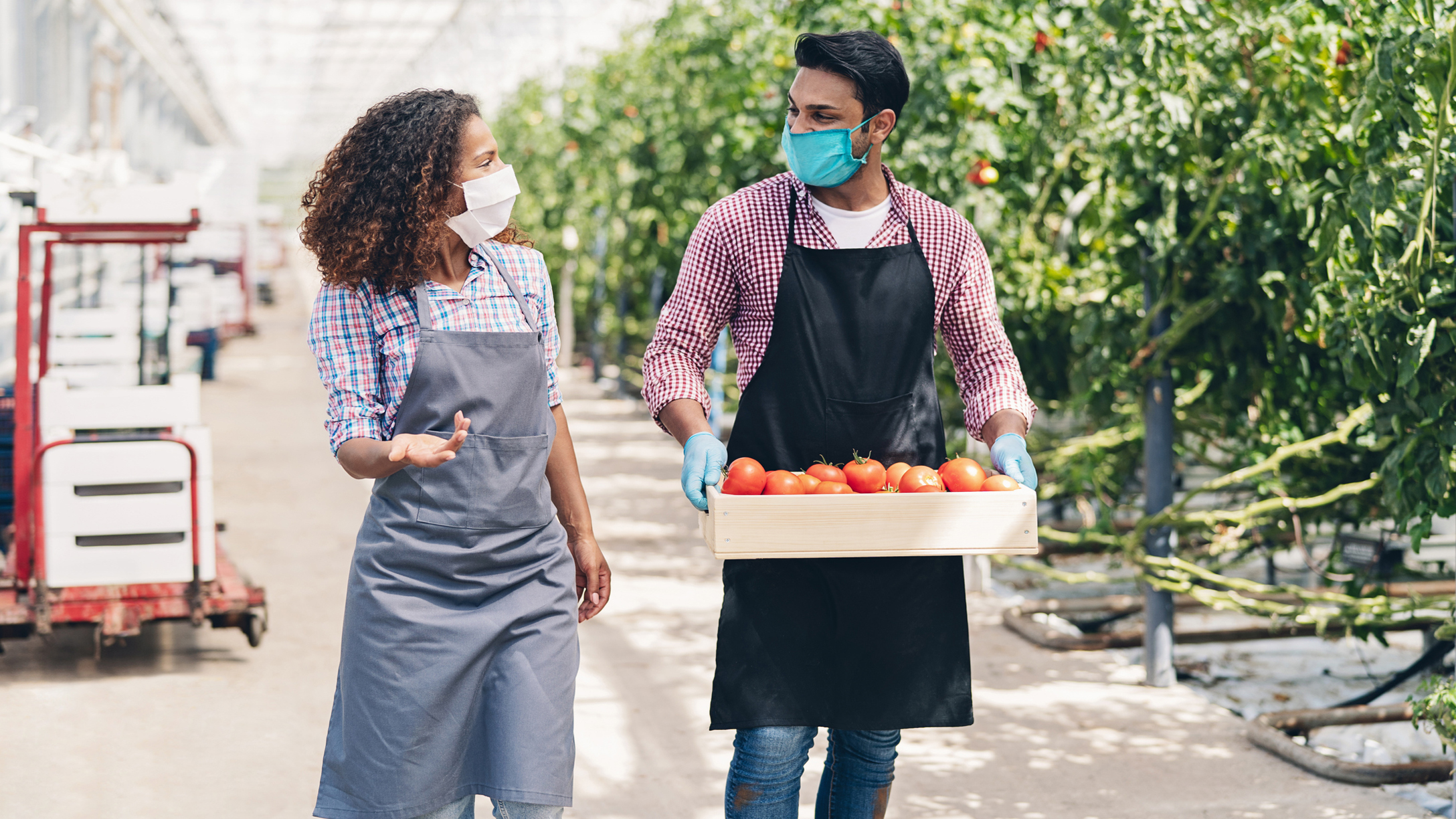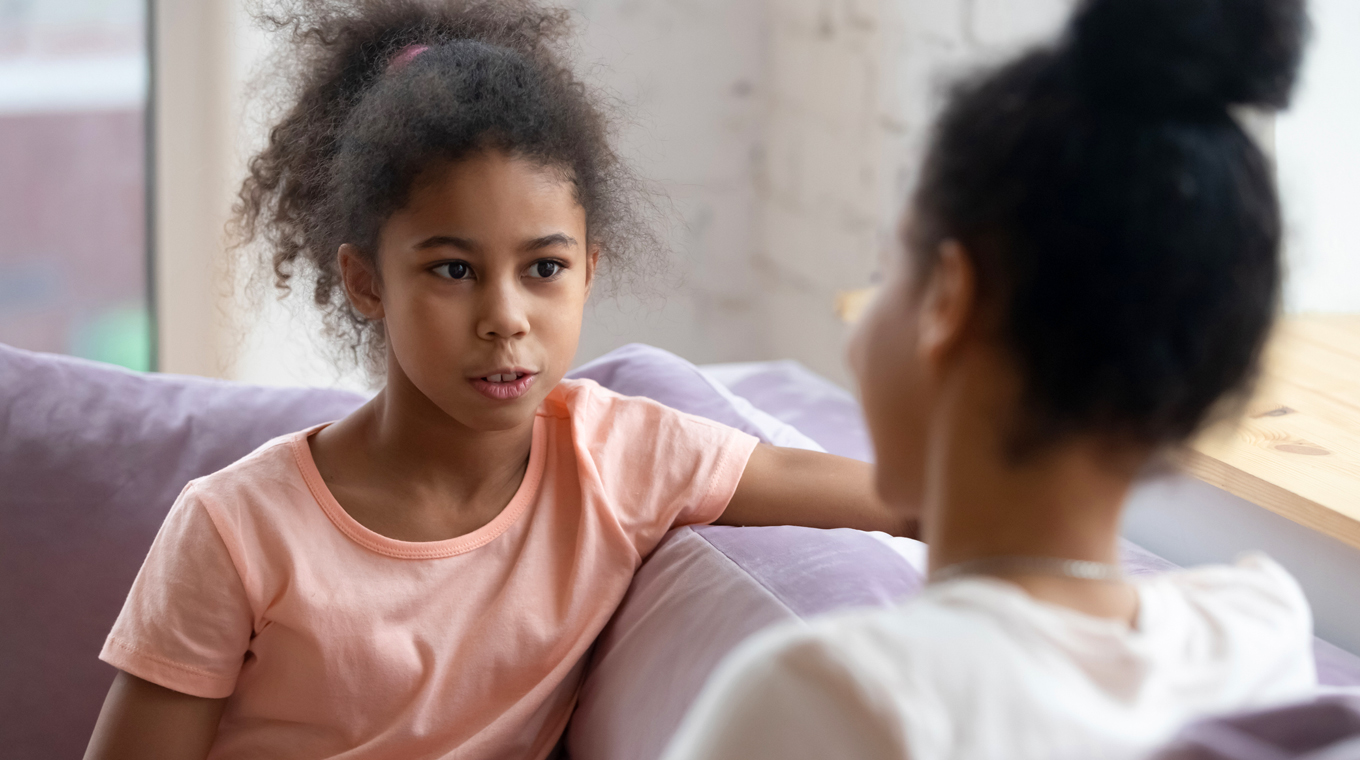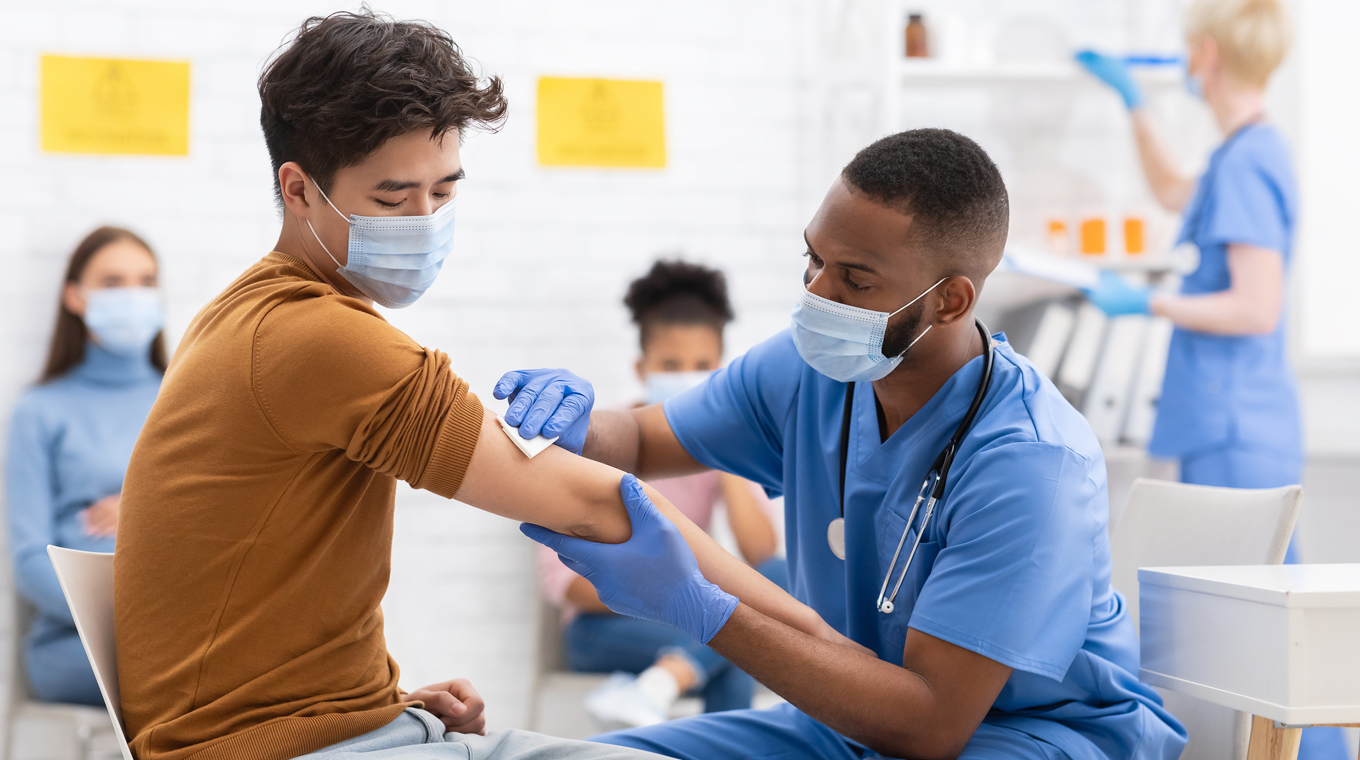
In this article
As the highly contagious Delta variant of COVID-19 rages throughout the country, the debate on whether or not to get the shot is becoming more and more contentious within some family and friend groups — if they’re willing to talk about vaccinations at all. Celebrities like Jennifer Aniston have made their struggles with talking about vaccinations public, telling InStyle magazine that she dropped people from her life who wouldn’t get the COVID vaccine or wouldn’t say if they had been vaccinated.
For some people, the choice to get the shot or wear a mask is deeply personal and rooted in their religious or political beliefs. While parents may be used to talking about vaccinations with other parents, it’s a whole other thing to bring it up with your aging mom, your sister who lives in another state, or your best friend who doesn’t share the same beliefs. So how do you start the conversation? And how do you talk about vaccinations and not get into an argument?
How to talk to adults about vaccines

Keva Ward is a Certified Senior Trainer at Safe Conversations, the global communications and relationship program. We asked her how to bring up the subject of vaccinations when there’s so much more to it than whether or not you’ve gotten a shot.
“I think folks are really at a loss for how to deal with the polarization that we’re experiencing so much of lately,” Ward said.
When you’re talking about something as delicate as the COVID vaccine, you don’t want to come in too hot and you don’t want to start by telling the person what you think they should do.
Ward suggested setting an appointment to let the other person know what you want to talk about so they don’t feel ambushed and also so they have time to prepare for the conversation. Then, when you’re ready to talk, be calm.
“The first thing I need to recognize is that my brain and your brain are going to be triggered by body language,” Ward said. “Before I even utter a word, I need to approach you with a relaxed posture. I’m going to take a couple of deep breaths and center myself.”
Then, make sure to show them respect by listening and considering their boundaries, she said.
That all sounds great, but what happens when you’re talking to a family member with whom you have a long history of not seeing eye to eye. How do you stay calm?
Ward advised you breathe and say to yourself, “I am not at the mercy of my emotions. We have to use our brains to manage our emotions and make sure that the words that come out of our mouths don’t trigger the other person’s brain. And that’s hard.”
How to talk to kids about vaccines

For Meg Buzzi of Los Angeles, it’s been especially challenging helping her 13-year-old daughter navigate such a polarizing subject after her daughter's friend told her daughter that no one should get vaccinated.
“It’s been very emotional. I remember my daughter coming to me in tears and saying, ‘How do my friends not see that this (getting vaccinated) is something generous that we can do for everybody else who needs to be protected?” Buzzi, a leadership coach at Rah Rah Rah Creative, told Mom.com.
While parents are being polite to one another and avoiding the subject, kids are the ones internalizing the conflict, Buzzi said.
When talking to kids about vaccinations, use the same strategy you would with adults, Ward said. Like adults, kids want to feel they are being seen and heard. Let them know you want to talk, be calm, listen, and ask questions.
COVID-19 stats: How many people have died from COVID vaccines? What are the long-term effects? And are the vaccines working?

Misinformation about vaccine safety has spread like wildfire. However, medical experts and the Centers for Disease Control and Prevention (CDC) stress that they are safe and effective. The Food and Drug Administration gave full approval to the Pfizer vaccine on August 23.
More than 200 million people — 60 percent of the U.S. population — have had at least one shot of the COVID-19 vaccine. According to the CDC, of those people, about .0019 percent died after getting the shot — but that doesn’t mean the shot caused their death. By contrast, the CDC points out that the number of people who have died after contracting COVID-19 in the United States is about 614,531.
As far as whether the vaccines are working in light of the new surge in cases due to the Delta variant, Dr. Anthony Fauci, director of the National Institute of Allergy and Infectious Diseases, told USA Today that the vaccine is doing its primary job.
“…so somebody says, ‘Why should I get vaccinated? Well, because we don’t want you to end up in the ICU in the hospital," Fauci said. "I can guarantee you 99 percent that if you get vaccinated, you’re not going to end up in the ICU. That’s the primary reason to get vaccinated. People confuse it, they think the primary reason is that you don’t have to wear a mask.”
He has also said that mask wearing is important so the virus isn’t spread to unvaccinated people, who could potentially get very sick.




